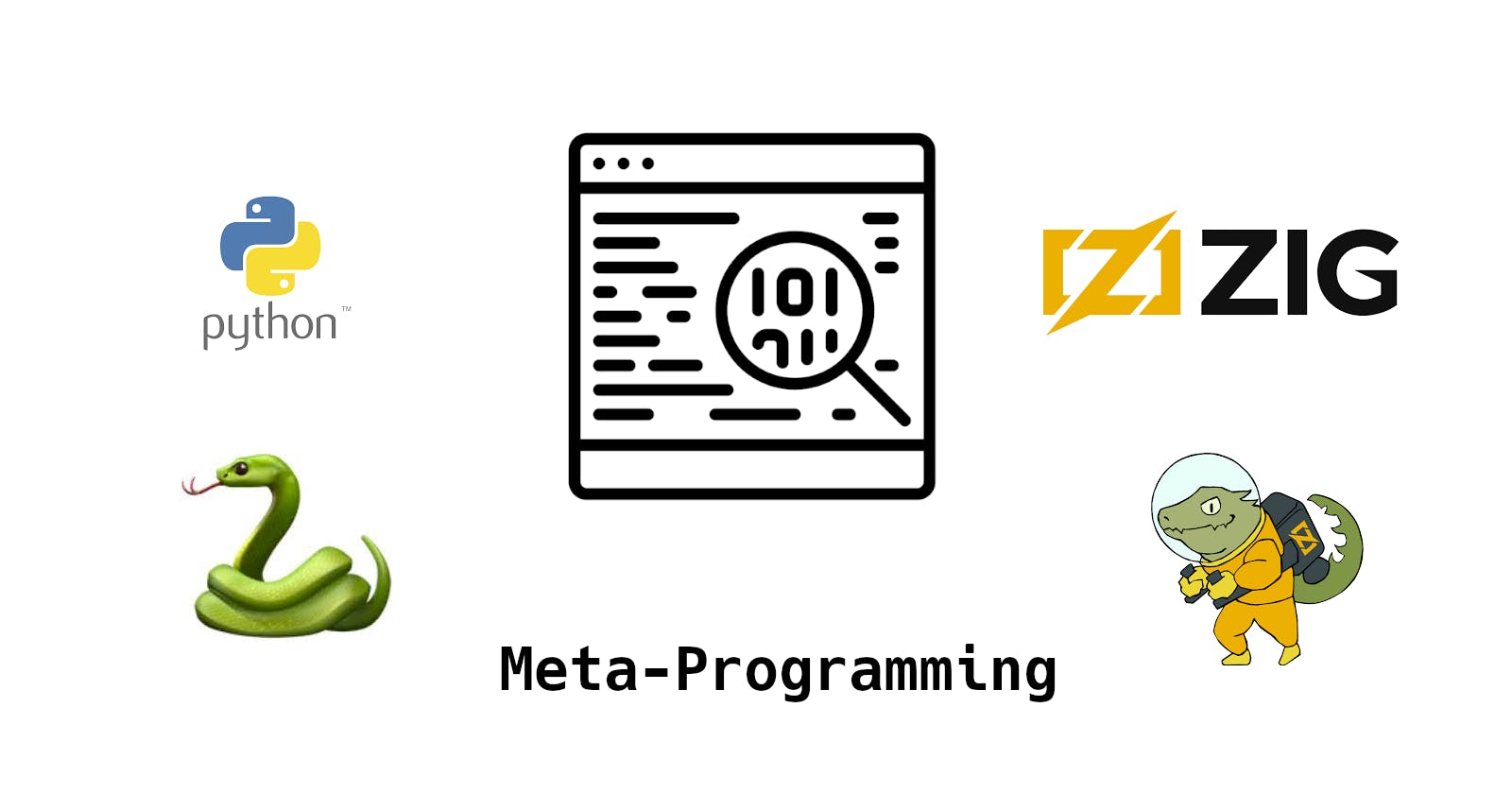Understanding the Power of Meta-programming: A Journey into Compile-Time and Runtime Magic
Embrace the Code Sorcery and Watch Your Programs Bend and Twist!
Introduction
Metaprogramming, a fascinating programming technique, empowers developers to write code that generates or manipulates other code. By treating code as data, metaprogramming opens up new realms of flexibility and efficiency. This blog post delves into the two main forms of metaprogramming: Compile-Time and Runtime. We'll explore how languages like Zig employ compile-time metaprogramming using comptime. Additionally, we'll showcase Python's runtime metaprogramming capabilities with the eval function. Get ready to unveil the wizardry of metaprogramming!
Simpler Explanation
Metaprogramming is like a magician's hat for programmers. It allows us to create special tricks where the code can modify or create new code on its own. Imagine you have a box that can turn any shape you put inside it into a star, triangle, or square without you having to draw it separately. That's what metaprogramming does for code! It helps us save time and write smarter programs by making the computer do some coding for us.
Types of Metaprogramming
Metaprogramming manifests in two major forms - Compile-Time and Runtime. In Compile-Time Metaprogramming, the program generates code during the compilation phase itself. This is achieved using language features like comptime in Zig, which allow code to be customized for different data types or conditions at compile-time. On the other hand, Runtime Metaprogramming occurs while the program is running. Languages like Python enable this through constructs like eval, which lets you execute code dynamically, creating new functionality on-the-fly. Both approaches offer unique benefits and challenges, making metaprogramming a powerful tool in a programmer's arsenal.
Examples of Metaprogramming
- Compile-Time Metaprogramming in Zig (Using Comptime):
const std = @import("std");
fn square(number: i32) comptime i32 {
return number * number;
}
pub fn main() void {
const number: i32 = 5;
const result = square(number);
std.debug.print("Square of {}: {}\n", .{number, result});
}
- Runtime Metaprogramming in Python (Using Eval):
def calculate_square(number):
return number * number
def calculate_cube(number):
return number * number * number
operation = input("Enter 'square' or 'cube': ")
if operation == 'square':
func_str = "calculate_square"
elif operation == 'cube':
func_str = "calculate_cube"
else:
print("Invalid input.")
exit()
try:
num = float(input("Enter a number: "))
except ValueError:
print("Invalid number.")
exit()
result = eval(func_str + "(" + str(num) + ")")
print(f"Result: {result}")
Reading Suggestions:
Use Cases of Metaprogramming
Code Generation: Metaprogramming is handy in generating repetitive code patterns for different data types or configurations at compile time.
Domain-Specific Languages (DSLs): Metaprogramming aids in designing and implementing specialized languages for specific problem domains.
Serialization and Deserialization: Compile-time metaprogramming can optimize serialization and deserialization routines by automatically generating efficient code for different data structures.
Dynamic Configuration: Runtime metaprogramming enables dynamic configuration loading, allowing applications to adapt behaviour based on user input or external settings.
Takeaway
Metaprogramming empowers developers to wield code's magic, allowing code to write or manipulate itself. Compile-Time Metaprogramming in languages like Zig unlocks enhanced genericity and performance optimizations, while Runtime Metaprogramming in Python provides dynamic adaptability.
Embracing metaprogramming thoughtfully can elevate software development by automating repetitive tasks and building more flexible and intelligent systems. Explore the world of metaprogramming and unleash the hidden potential in your code.
Happy coding!

